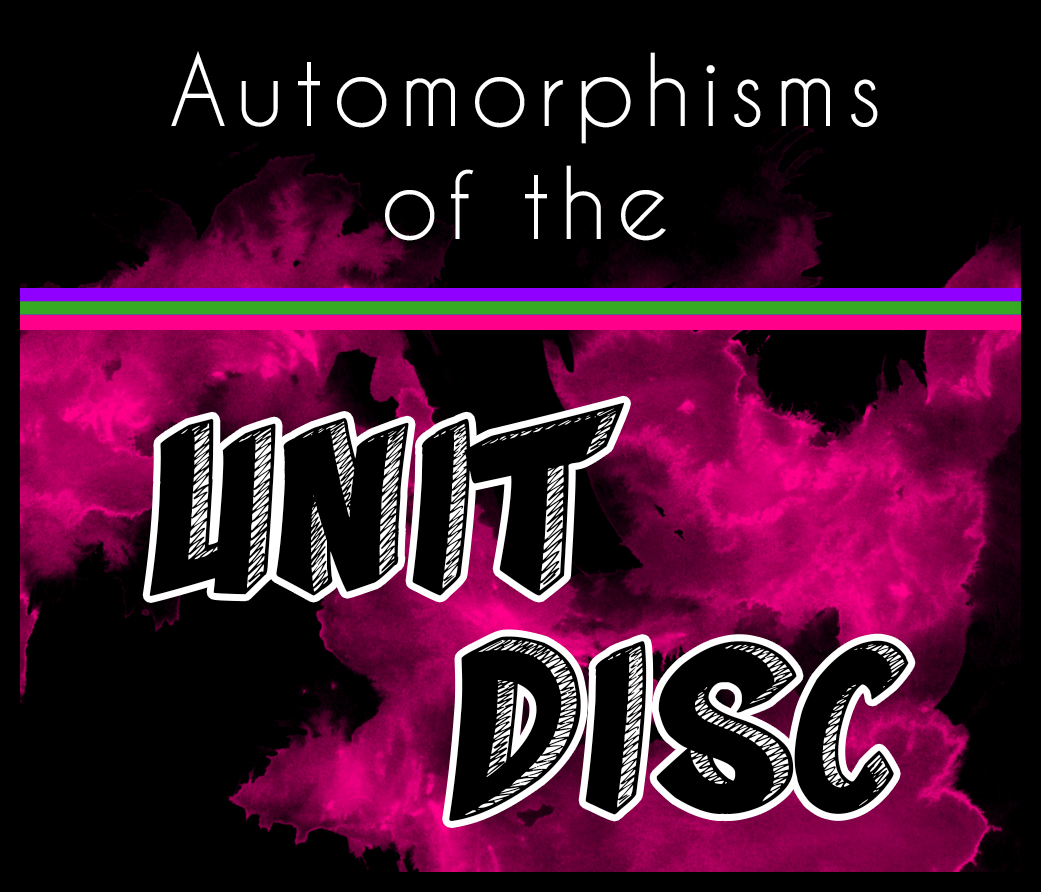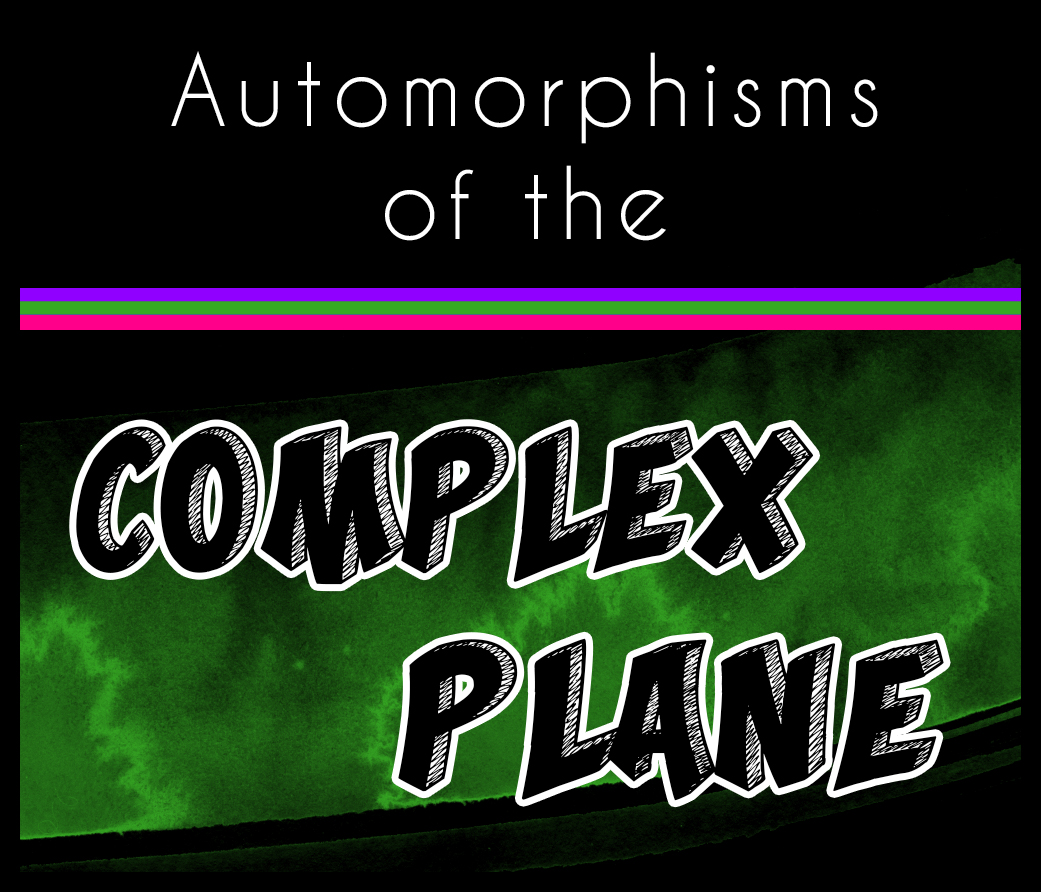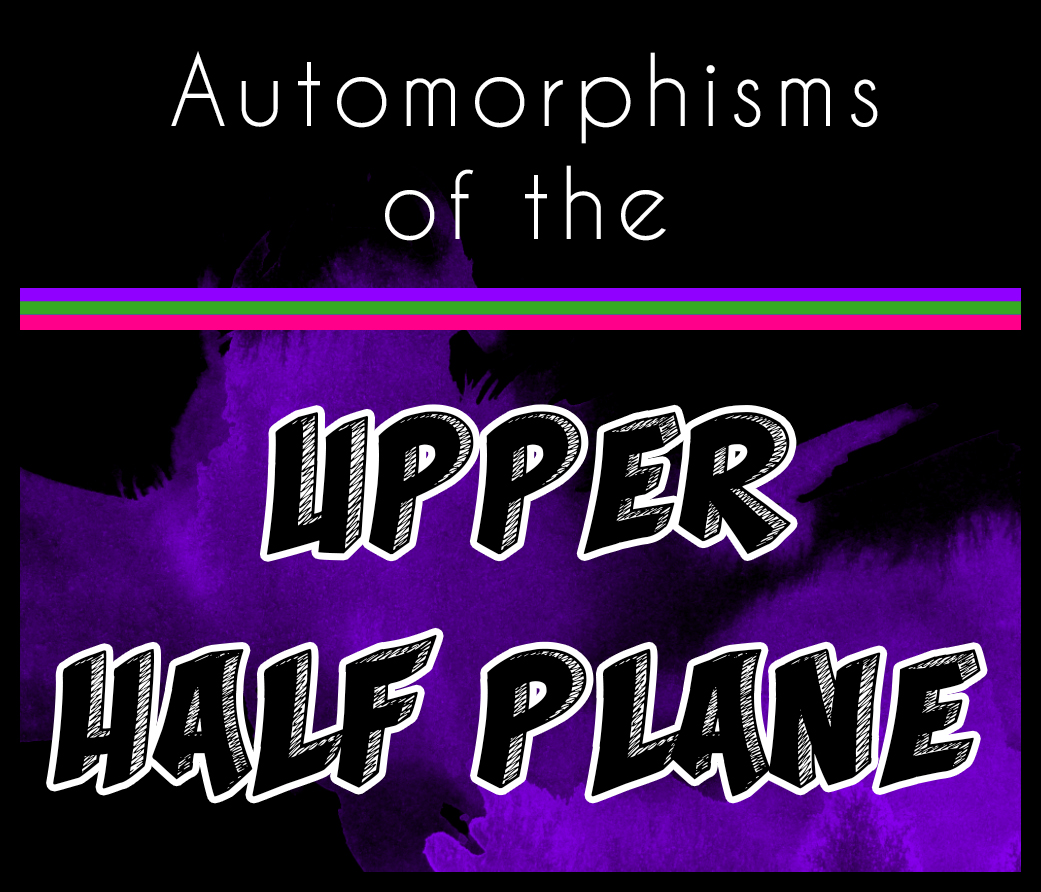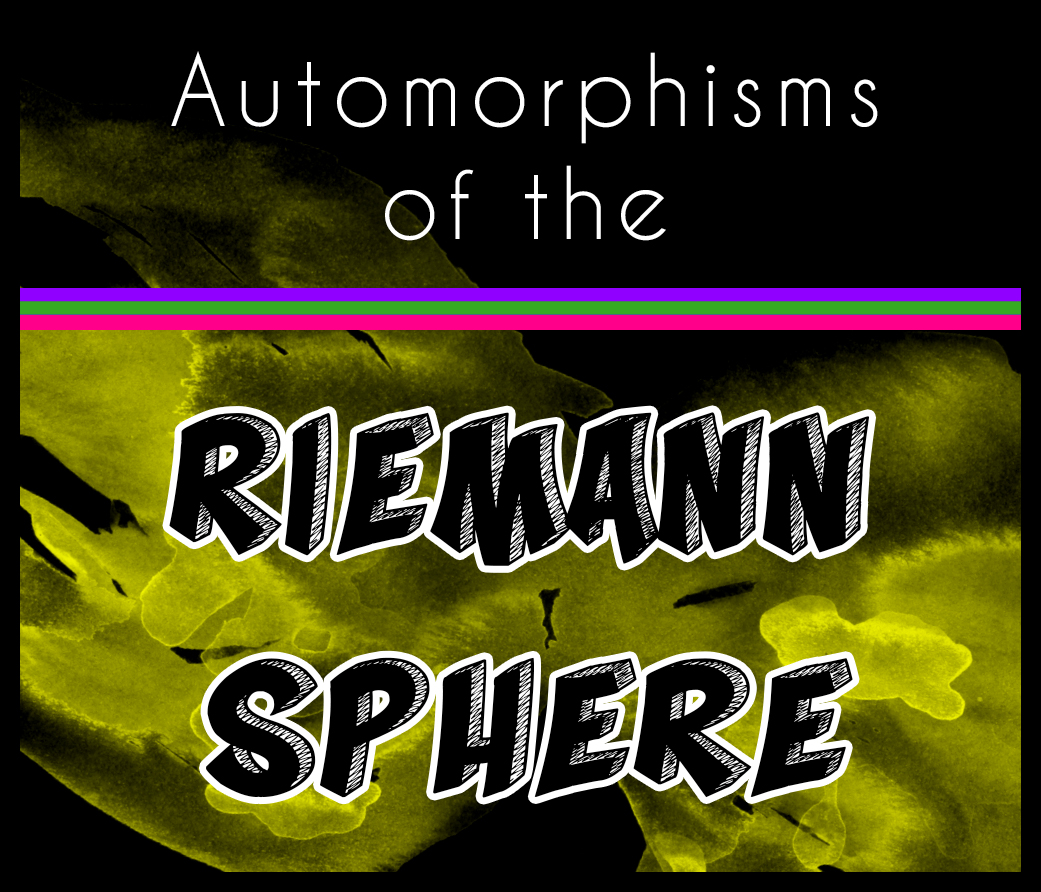Automorphisms of the Unit Disc

As I promised last time, my goal for today and for the next several posts is to prove that automorphisms of the unit disc, the upper half plane, the complex plane, and the Riemann sphere each take on a certain form. Fair warning: these posts will be mostly computational! Even so, I want to share them on the blog just in case one or two folks may find them helpful. (As we all know, grimy calculations can be painful!)
And if you need some motivation for this series and missed last week's post, be sure to check it out first!
Also in this series:



Automorphisms of the Unit Disc
Theorem: Every automorphism $f$ of the unit disc $\Delta$ is of the form $f(z)=\frac{az+b}{\bar b z+\bar a}$ where $a,b\in\mathbb{C}$ and $|a|^2-|b|^2=1$.
Proof. First let's suppose $f\in\text{Aut}(\Delta)$. One can show by Schwarz's Lemma that for $z\in\Delta$ and $\alpha=f^{-1}(0)$, the function $f$ can be written as $$f(z)=e^{i\theta}\frac{z-\alpha}{1-\bar\alpha z}=\frac{\lambda z - \lambda \alpha}{1-\bar\alpha z}$$ where $\lambda=e^{i\theta}$ with $\theta\in\mathbb{R}$. (If you haven't seen the proof, you can find it here.) Now let $k=1-|\alpha|^2$ and define $a=\sqrt{\lambda/k}$ so that $$a=\frac{1}{\sqrt{k}}(\cos{\theta/2}+i\sin{\theta/2})$$ and thus $$\bar a= \frac{1}{\sqrt{k}}(\cos{\theta/2}-i\sin{\theta/2})=\frac{1}{\sqrt{k\lambda}}.$$ This allows us to write \begin{align*} f(z)&=\frac{\lambda z - \lambda \alpha}{1-\bar\alpha z}\\[10pt] &=\frac{z\sqrt{\lambda} - \alpha\sqrt{\lambda} }{-(\bar\alpha/\sqrt{\lambda})z + 1/\sqrt{\lambda}}\\[10pt] &=\frac{z\sqrt{\lambda/k}-\alpha\sqrt{\lambda/k}}{-(\bar\alpha/\sqrt{\lambda k})z+1/\sqrt{\lambda k}} \end{align*} where in the second line we have multiplied top/bottom by $1/\sqrt{\lambda}$ and in the last line we have multiplied top/bottom by $1/\sqrt{k}$. But notice! This is precisely of the form $$f(z)=\frac{az+b}{\bar b z+\bar a}$$ where as above $a=\sqrt{\lambda/k}$ and $b=\alpha\sqrt{\lambda/k}$. Moreover, \begin{align*} |a|^2-|b|^2&=a\bar a - b\bar b\\ &= 1/k-|\alpha|^2/k\\ &=(1-|\alpha|^2)/k\\ &=1 \end{align*} as desired.
Conversely suppose that for some $a,b\in\mathbb{C}$ with $|a|^2-|b|^2=1$ we have $f(z)=\frac{az+b}{\bar b z+\bar a}$ for $z\in\Delta$. Then $f(z)\in\Delta$ since $|f(z)|< 1$ if and only if $|az+b|< |\bar b z+\bar a| < 1$ which holds if and only if (by expanding the terms) $(|a|^2-|b|^2)|z|^2<|a|^2-|b|^2$ and - by our assumption - that's true if and only if $|z|^2< 1$ which is, of course, true.
Moreover, $f$ is bijective since it has inverse $f^{-1}(z)=\frac{-\bar a z+b}{\bar bz-a}$. One can also check that both $f$ and its inverse are holomorphic (In particular, $f$ and $f^{-1}$ are linear fractional transformations.) showing that $f$ is indeed an automorphism of $\Delta.$
$\square$
Next time: We'll prove a similar result about the automorphisms of the upper half plane.
